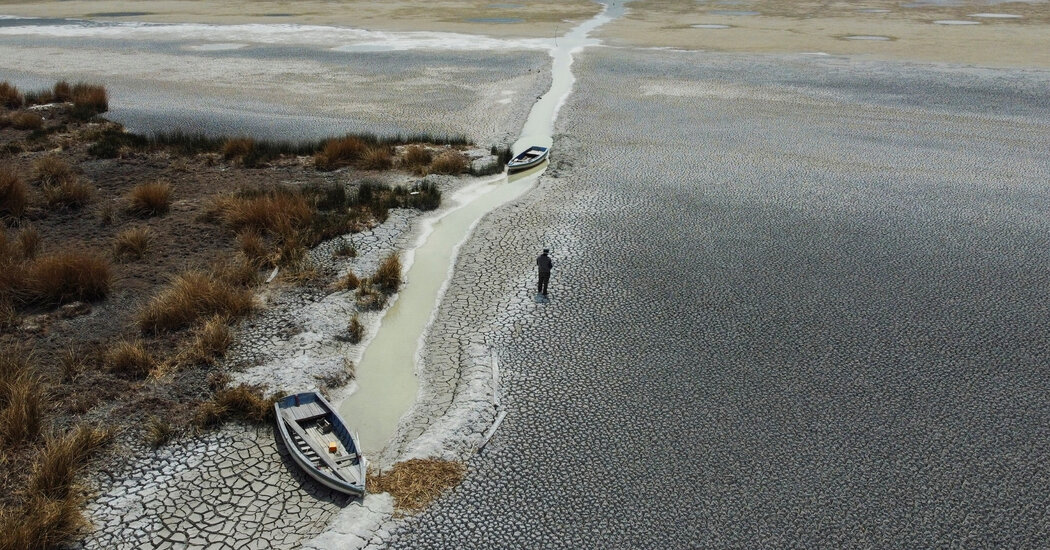Someone: “These people are dying from the droughts! So many lives ended!!”
Corporations: “Ended? No, those lives are just disrupted.”
Sorry, there is currently a disruption of service. However, we do offer 99.9% life uptime.
We reserve the right to cancel your service at any time without liability.
Large-scale desalination efforts should have been started decades ago. If we could extract a steady pipeline of fresh water without a fuckload of energy and byproducts, we could save a lot of impacted communities.
Sadly you can’t desalinate without a significant energy input.
Not necessarily. You do it with a dome

I see lots of renderings and press releases…but nothing about what it actually cost once built, and I don’t see others rushing to do the same, which suggests that the project didn’t come in anywhere near the promised cost per unit volume of desalinated water.
I agree with you. I like the concept but until it’s reality I’ll remain skeptical
Energy is not the issue in most cases. We have many ways of producing energy. We use it to go to the store and burn fires with friends on the weekend, water seems to be a good use too. There’s plenty of desalination going on around.
The issue is the incredibly toxic brine that results from it, that we aren’t sure what to do yet. We have been spending decades looking for easier energy, but not how to work with the brine. It’s almost guaranteed we will need to at some point, would be nice that nobody dies of thirst while we start.
Huh? Plenty of desalination going on already. Brine gets diluted back into the ocean.
The reason it’s limited is that desalination requires a lot of energy and is therefore too expensive for most agricultural use
Where I live, the prices would be for about €1/cubic meter. That is very low. And it wouldn’t hurt farmers to be a bit more conscious on how they use water. There are still to many people that irrigate by flooding, which is demontrated as a bad practice.
The brine problem I really don’t understand it.
Nowadays, industry buys salt, processes it to remove rare metals and elements and sells back the purified sodium cloride we buy from shelves (don’t buy it; go for raw salt if you can) or ship it to other industries to be used as a filler (like powdered laundry soap).
The brine can be as easily processed into these same end uses.
He’s wrong that energy is the issue. Yes it’s expensive, but we can do it safely.
The brine, you cannot just throw back into the ocean, it will instantly cause a natural disaster if done at scale. For one, a lot of chemical reactions during the desalination process cannot be diluted, they must be removed. These chemicals are also not just removed with energy, they are removed with other chemicals who then need energy and more chemicals for removal.
The salt we eat and the salt we use on our roads or in our batteries are all very specific kinds. Only a small portion of the brine is what you would actually consider safe for human use or consumption.
With enough energy and chemical processes, we can definitely handle the brine. But it is the expensive cleanup part that no corporation wants to do, and it won’t mean that the byproducts are profitable to manage, despite them requiring to be managed. We’ll get there, but knowing humans we will have to wait until we are well embedded in the disaster to start acting. Water should be sustainable worldwide, not profitable.
Call me skeptic but I’ll risk there are a good number of industries that could use and profit from using that brine.
And you opted by the chemical process. Why not use reverse osmosis or pure and simple forced evaporation?
The issue is that even at scale, they won’t be able to undercut the traditional ways other companies already acquire these materials. The energy is just that costly. So in a way it is the cost of energy that is prohibiting capitalism to save us, but that’s not the underlying problem if we knew what to do with the brine cheaply.
I did not opt for the “chemical process” per se, concentrating the salt itself causes chemical reactions and compounds that are difficult to manage, without us adding any to the mix.
They also often add some chemicals for stabilizing the brine to make it more manageable until disposal that would be difficult to circumvent
👏multi👏bread👏basket👏failure
This is the best summary I could come up with:
“Droughts operate in silence, often going unnoticed and failing to provoke an immediate public and political response,” wrote Ibrahim Thiaw, head of the United Nations agency that issued the estimates late last year, in his foreword to the report.
The arrival last year of El Niño, a natural, cyclical weather phenomenon characterized by warmer-than-normal temperatures in parts of the Pacific Ocean, has also very likely contributed.
The Famine Early Warning Systems Network, a research group funded by the United States government, estimates that the ongoing El Niño will affect crop yields on at least a quarter of the world’s agricultural land.
The export restrictions further help keep prices low and, in a country where hundreds of millions of voters subsist on rice, they dampen political risks for incumbent lawmakers.
In a region where violence and economic insecurity drive millions of people to try to migrate north to the United States, one recent study found that drought can press a heavy finger on the scale.
“If that goes into atmosphere as greenhouse gases, that can be the straw that breaks the camel’s back for the global climate,” said Philip Fearnside, a biologist at the Institute for Amazonian Research in Manaus, Brazil.
The original article contains 826 words, the summary contains 200 words. Saved 76%. I’m a bot and I’m open source!



